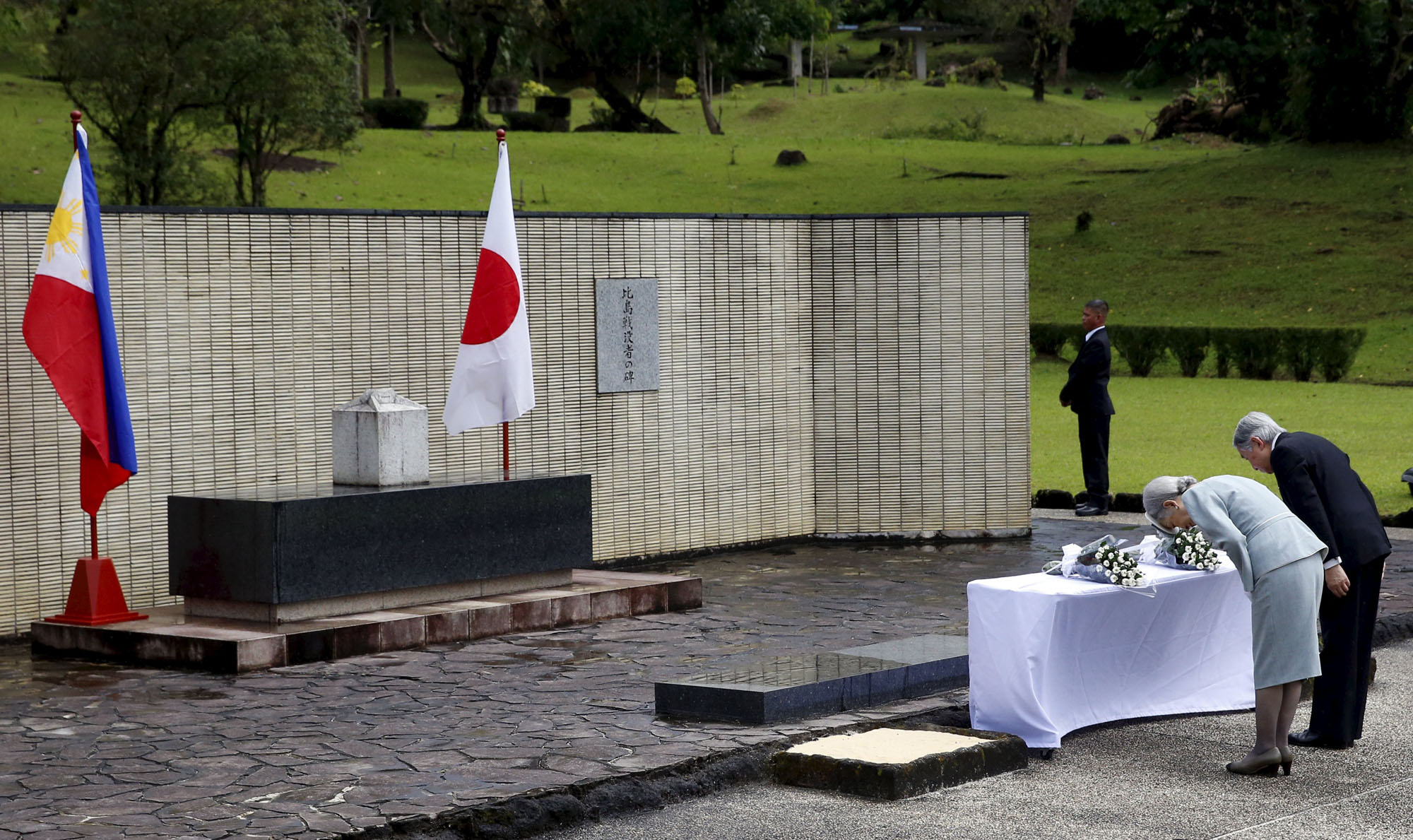In recent years, the Imperial couple have made an effort to leave behind a meaningful legacy by visiting World War II battlefields. The idea is to ensure that future generations of Japanese do not forget the war and its bitter lessons.
However, until they visited the Philippines two weeks ago their destinations have been places where the casualties were mostly Japanese. In Manila, they commemorated a battle in which the victims were mainly local civilians, 60 percent of whom perished at the hands of Japanese soldiers. Watching the Japanese media tip-toe around this fact was interesting and a little depressing.
The coverage focused on the Emperor and Empress visiting landmarks for fallen Japanese, or meeting with Japanese expatriates and offspring of Japanese-Filipino heritage. In one of his speeches, the Emperor stressed that "innocent" Filipinos were killed in the war, and Asahi Shimbun was one of the few major media outlets to run a feature on the Imperial couple's appointment with descendants of late Philippine President Elpidio Quirino, who pardoned all Japanese war criminals in 1953. Though Quirino's act is well-known in the Philippines, it is glossed over in Japan despite the fact that it remains the seminal event in postwar Japan-Philippines relations.



